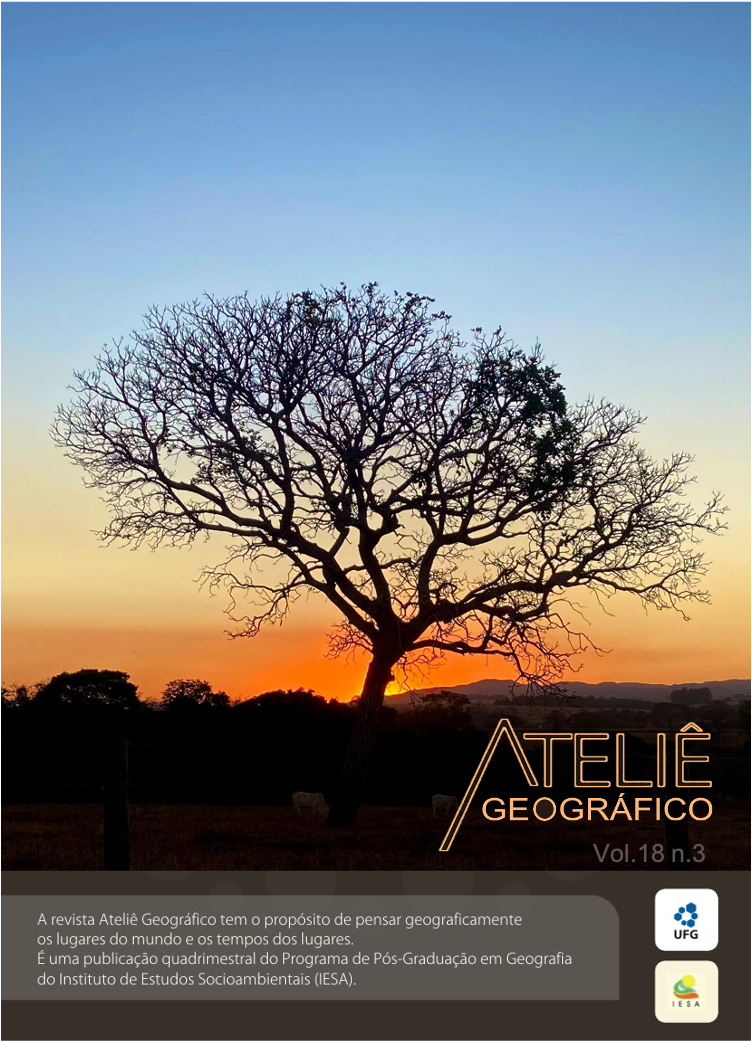Espaços de moradia na periferia da Região Metropolitana de Curitiba: caracterização tipológica dos Setores Especiais de Núcleos Urbanizados no Município de Mandirituba
DOI :
https://doi.org/10.5216/ag.v18i3.78555Résumé
Em um contexto em que a definição do que é "urbano" torna-se cada vez mais difusa, este artigo investiga os diferentes espaços de moradia resultantes da metropolização na Região Metropolitana de Curitiba (RMC), Estado do Paraná, tomando como referência os Setores Especiais de Núcleos Urbanizados no Município de Mandirituba. A investigação identificou quatro tipos de espaços, denominados: Rural, Dormitório, Limítrofe e Subcentralidade. Para a caracterização desses foram utilizados dados socioespaciais, por meio de levantamento de campo e utilização de fontes secundárias. A análise revelou a complexidade da produção do espaço no atual estágio da metropolização na RMC e, em função disso, a necessidade de repensar o planejamento territorial metropolitano que vem sendo adotado. O trabalho pretende contribuir com o desenvolvimento de metodologias voltadas a pesquisas socioespaciais, bem como em termos teórico-explicativo e aplicado, vinculados à compreensão e atuação nas dinâmicas espaciais presentes em municípios periféricos de regiões metropolitanas.
Téléchargements
Téléchargements
Publié-e
Versions
- 2025-02-17 (3)
- 2025-02-17 (2)
- 2024-12-29 (1)
Comment citer
Numéro
Rubrique
Licence
Autores que publicam nesta revista concordam com os seguintes termos:- Autores mantém os direitos autorais e concedem à revista o direito de primeira publicação, com o trabalho simultaneamente licenciado sob a Licença Creative Commons Attribution que permite o compartilhamento do trabalho com reconhecimento da autoria e publicação inicial nesta revista.
- Os autores não serão remunerados pela publicação de trabalhos na Revista Ateliê Geográfico. Além disso, os conteúdos publicados são de inteira e exclusiva responsabilidade de seus autores, ainda que reservado aos editores o direito de proceder a ajustes textuais e de adequação às normas da publicação.
- Autores têm permissão e são estimulados a divulgar seu trabalho online (ex.: em repositórios institucionais ou na sua página pessoal), já que isso pode gerar alterações produtivas, bem como aumentar o impacto e a citação do trabalho publicado (Veja O Efeito do Acesso Livre).


